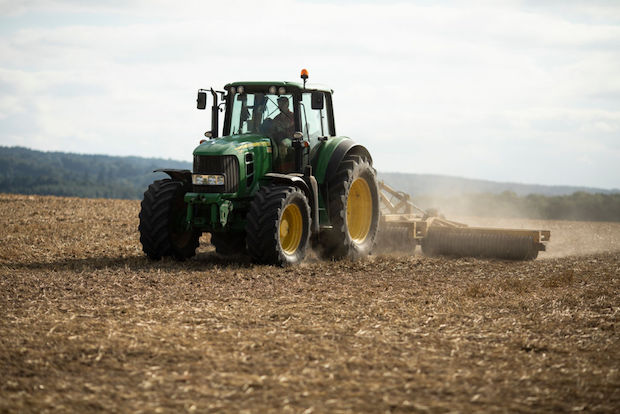As if the nation is not already mired in enough scandal, now comes the revelation that half the land in England is owned by just 25,000 individuals and organisations (1% of the population!). How wrong and elitist that sounds when placed beneath a Guardian headline which implies it is a yet another measure of horrible inequality and deprivation. According to Labour MP John Trickett “The dramatic concentration of land ownership is an inescapable reminder that ours is a country for the few and not the many”.
But it means nothing at all. We are not an agrarian society. Fewer than one per cent of the population are employed in agriculture. In addition to farmworkers there are a few allotment-holders, like Jeremy Corbyn, who satisfy some of their own food needs. As for the rest of us, we are quite happy to buy our food with money we have earned in other occupations. We have no need to own large amounts of land.
The acreage of land an individual owns is, in any case, a poor guide to overall wealth. You could own an acre of Sutherland and still not be as wealthy as someone who owed a square yard of the City of London. You could own a £10 million penthouse in London and not own any land at all – if you are a leaseholder, you are not a landowner. Conversely, there are plenty of farmers who own substantial numbers of acres – most of it with little development value yet have hardly a pair of farthings to rub together. On a measure of land-ownership, I note, I could myself claim to be deprived, as I own a mere tenth of an acre of land – my garden – and even that I share with my wife. Were land divided equally among the population I would be entitled to around an acre. But I don’t think the benefits office would be too impressed if I used that as an excuse to claim financial help from the taxpayer.
What matters far more than who owns land is what rights the rest of us have over it. It would be thoroughly depressing if England was made up entirely of private domains which the rest of us could not enter and enjoy. Yet we have parks, commons, footpaths and the right to roam over open moorland. In some places we could do with better public access, but we don’t need individually to own the land. Thirty per cent of land lies in the hands of aristocrats – a situation Shrubsole and The Guardian appear to find intolerable. Yet within this 30 per cent is much land available for public enjoyment. What does it matter that Chatsworth Park, for example, is owned by a Duke when we are all allowed to walk and picnic there? Most of us are able to enjoy land without the burden and responsibility of owning it – which is a pretty good deal. We get a good walk; while the poor aristocrat own owns it gets to deal with fallen trees, Japanese knotweed, fly-tipped waste and all the other hazards which go with land-ownership.
Would John Trickett and Guy Shrubsole, author of Who Owns England, really rather the country was divided up into acre-sized plots to which each of us is entitled? I know what my acre would look like: an uncultivated wilderness which produced no food and which was of no use to anyone. I am sure that wealth in Britain could be a bit better spread – but how much land is concentrated in a few hands provides no useful guide to the health of an advanced industrialised country







Comments